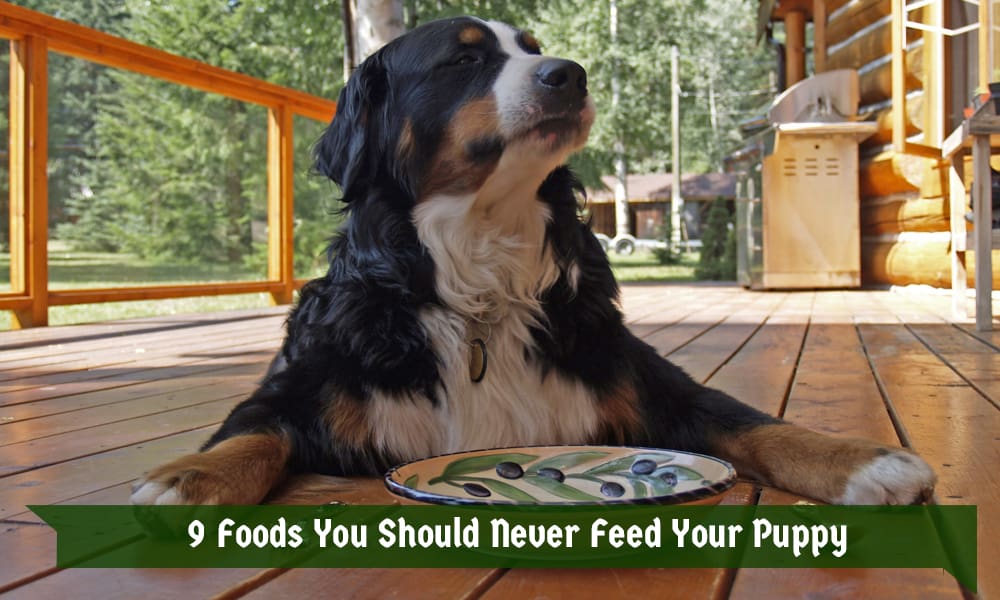
It’s a fact. Dogs are incessantly food driven and will munch on just about anything you feed them. And with those big sweet, “I’m starving so feed me” eyes, it can sometimes be hard to resist tossing them a few scraps. Admittedly, there’s nothing wrong with sharing a few treats with them, right?
Not necessarily!
Many foods are toxic to dogs and can end up wreaking havoc on a dog’s body. On the other hand, some foods can be introduced to the dog’s diet and even provide him with the necessary health benefits including allergy immunity and joint strength. However, before you give your pooch anything new, read on to find out what’s safe and what’s not.
Pet owners should always have in mind that while humans had more than 350 thousand years to evolve adjust to an omnivorous diet, dogs have evolved from a wolf-like ancestor less than 10 thousand years ago, meaning that most ingredients that can be easily ingested by humans are poisonous to dogs. Additionally, as with humans, some dogs have lower tolerances common items, including some fruits and vegetables, and are quite often lactose intolerant.
Contents
Foods that Should Be Strictly Off Limits
While not a complete list of ingredients that should never be found in a dog’s meal, these are the nine common foods for humans that should never be considered dog food. Some which are off the list are those that could be considered vices in humans, including alcohol, tobacco, and caffeine that are even poisonous to humans, but can be fatal to dogs even in small amounts.
You should always avoid the foods listed below and not allow yourself to succumb to puppy eyes and put any of it into your dog’s meal.
#1 Almonds
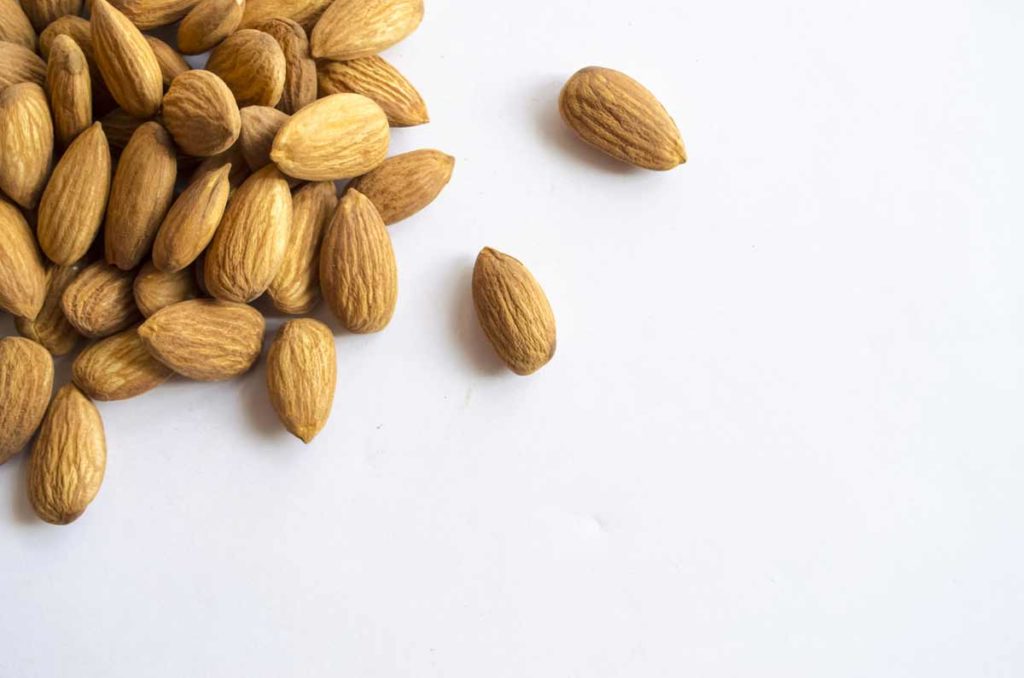
Now I know what you’re thinking: almonds couldn’t hurt a fly. Well, no argument there. The truth is, however, while almonds aren’t necessarily toxic, canines can’t seem to ingest them properly. They love the taste no doubt and crave them every time they see them, but as soon as they eat them, it’s a classic case of vomiting, lethargy, diarrhea, loss of appetite, gas, and general discomfort all over again. Moreover, almonds are pretty high in fat which means that your pup could easily develop pancreatitis if he overindulges in them.
#2 Chocolate
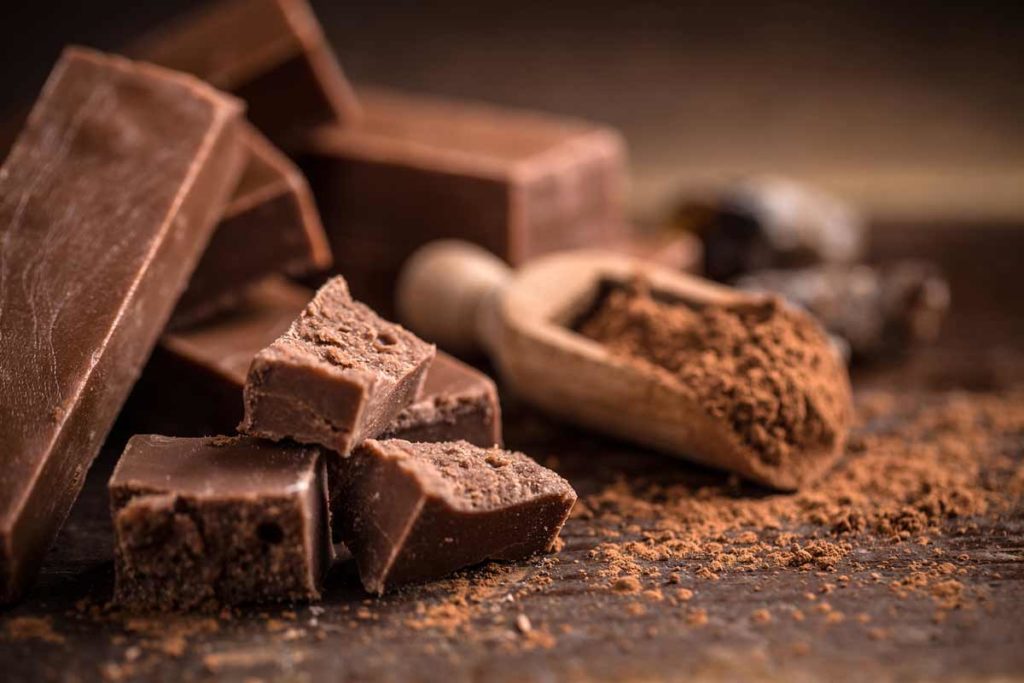
It might be your favorite treat, but it’s certainly no good for your little pooch. Containing tons of stimulants and various toxins that are harmful to just about any pooch, these seemingly harmless treats can cause a world of havoc on your dog’s metabolic processes resulting in chocolate toxicity.
Symptoms of Chocolate Toxicity
- Seizures
- Vomiting
- Tremors
- Collapse
- Hyperactivity
- High blood pressure
- Abnormal heart rhythms
- High body temperature
#3 Bones
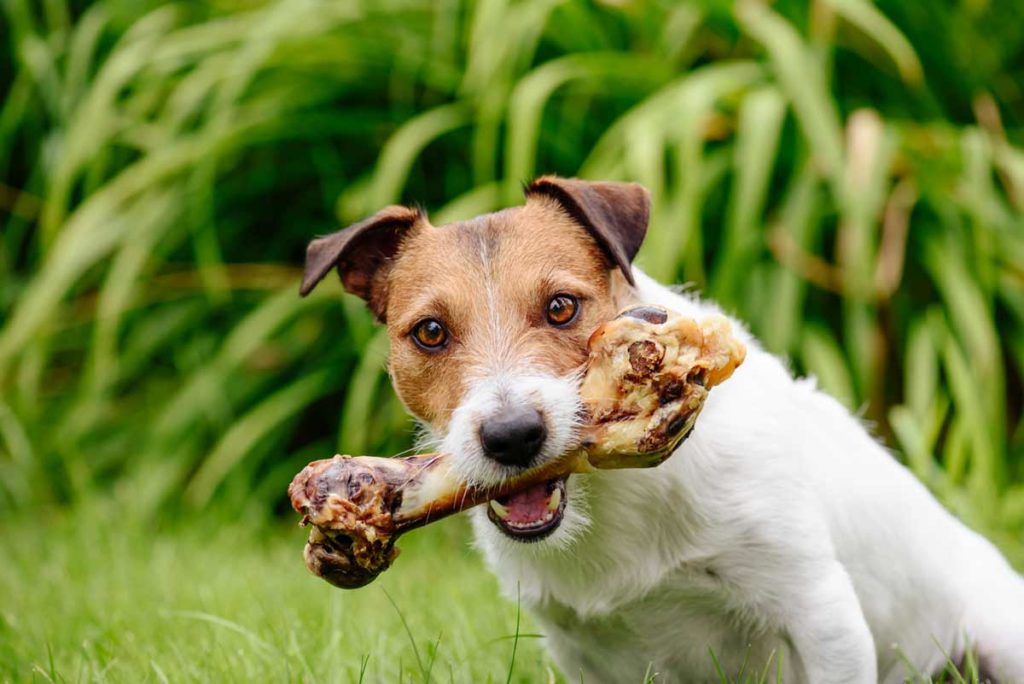
Throwing your dog a bone might seem like an almost natural thing to do. After all, you’ve probably done it all your life, and there hasn’t been much of a problem till now. However, both raw and cooked bones can be dangerous for your dog. Bones splinter quite easily and can, therefore, cause blockages or worse a puncture in the gastrointestinal tissues which could lead to a life-threatening condition where the contents of the intestines leak into the abdominal cavity.
#4 Cinnamon
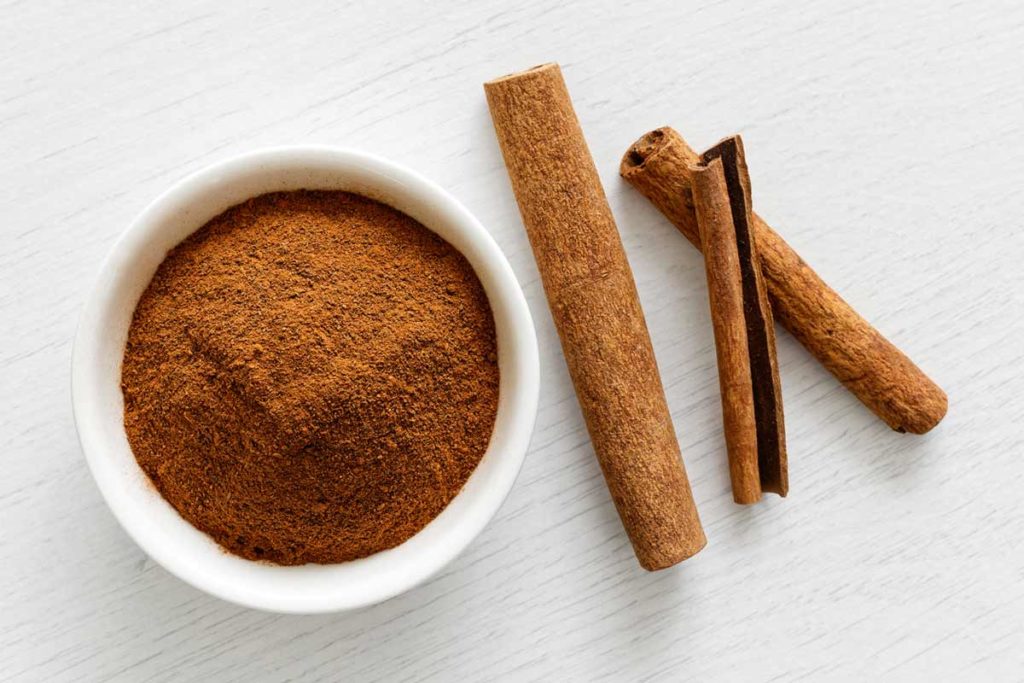
While cinnamon is not in any way toxic, it can irritate the digestive tract and the skin. So, in as far as your furry friend’s diet goes, ground cinnamon, cinnamon sticks, cinnamon essential oils, and cinnamon baked goods are all out of the question.
This doesn’t include treats and similar things that have cinnamon as an ingredient. Not only would those treat usually just have an extract, but they will be in such a form as not to irritate the dog’s system.
#5 Garlic
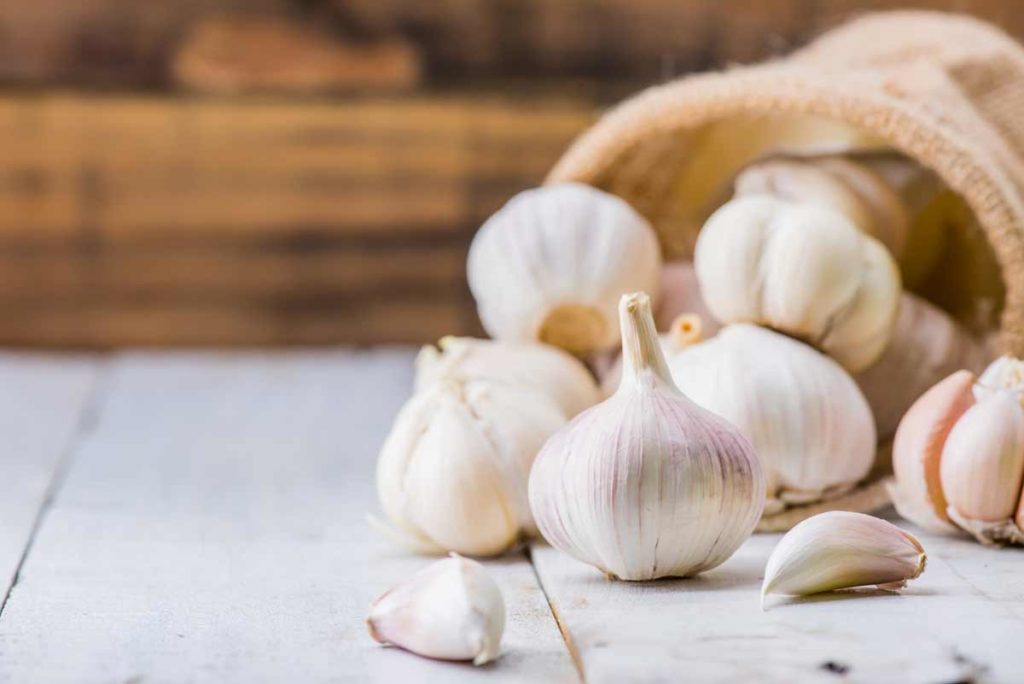
The smell of garlic is one that instantaneously makes one hungry. And I am not just talking about humans but dogs, too. However, while garlic has long been hailed for its medicinal benefits, it’s certainly not safe for your canine friend. In fact, according to the Merck Veterinary Manual, garlic contains thiosulfate which is toxic to dogs and can cause, among other things, anemia, lethargy, jaundice, weakness, rapid breathing, gastrointestinal upset, loss of appetite, vomiting, dehydration, diarrhea, and abdominal pain.
#6 Macadamia Nuts
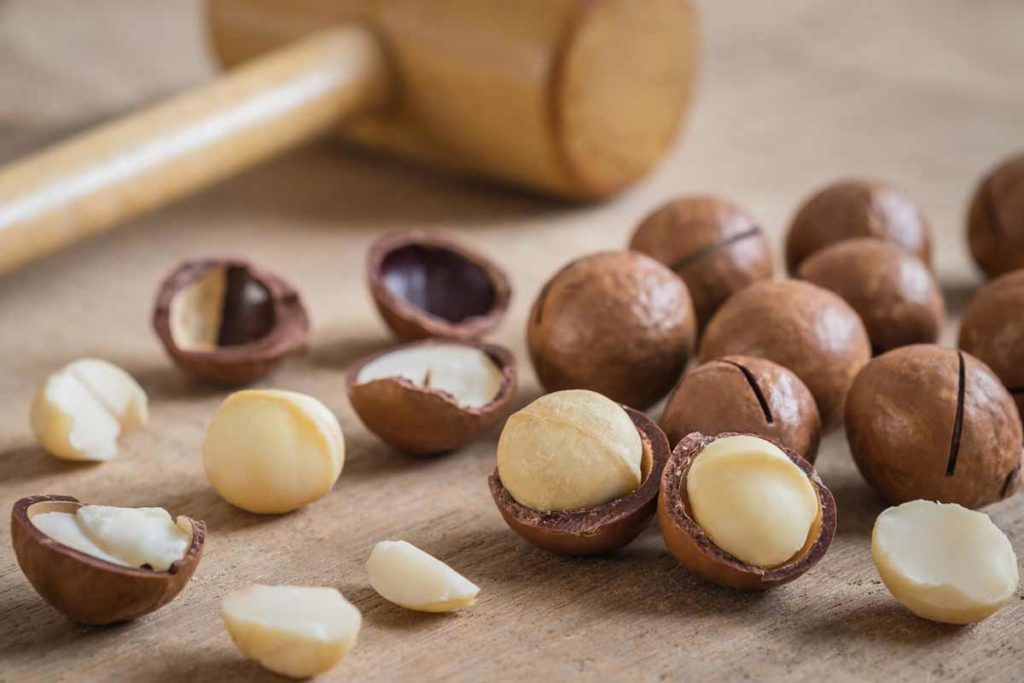
We all love macadamia nuts—even our furry friends. However, while they no doubt make a great treat every once in a while, they are not exactly ideal for dogs. Most dogs could experience hyperthermia, ataxia, depression, tremors, fever, vomiting, or general body weakness right after eating them.
#7 Ice Cream
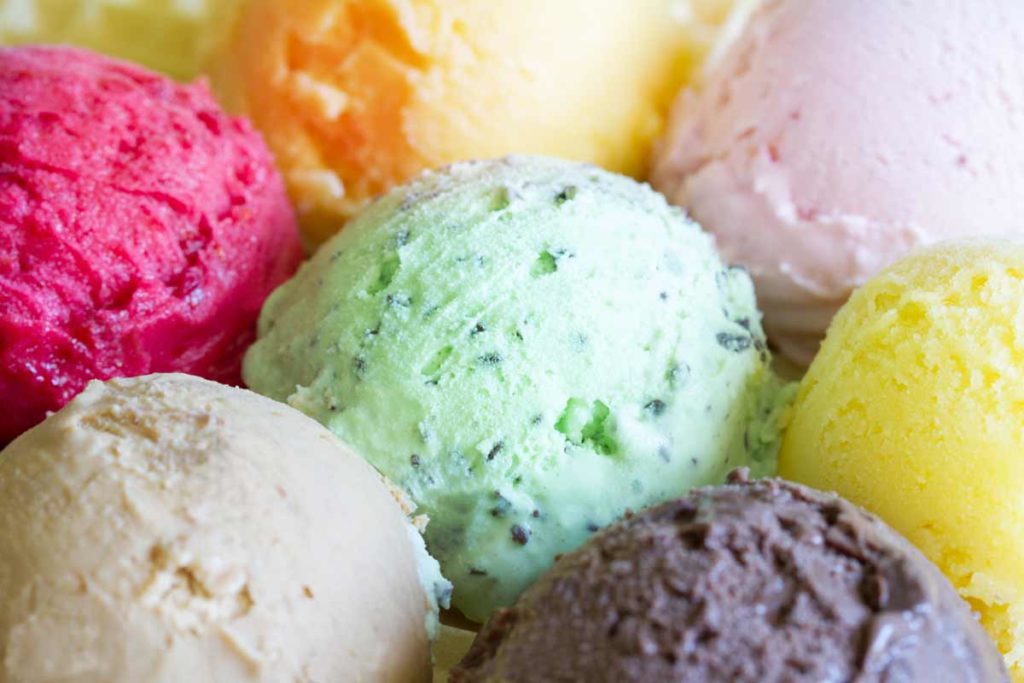
Allow me to be the party pooper. Ice cream is not good for dogs. Sure, we all love to share a little ice cream with our furry friends every once in a while, and that’s great. But you might want to avoid that from here on out.
Here’s why:
- Dogs bodies are not ideally made to digest milk after weaning. And since ice cream is made with milk, it can cause all manner of problems including bloating, constipation, diarrhea, and vomiting.
- Ice cream is loaded with sugar, and I don’t have to tell you that overindulgence in sugar can result in obesity and weight gain or even worse cause diabetes.
- Some ice cream flavors are dangerous for dogs. Case and point chocolate flavor.
#8 Guacamole
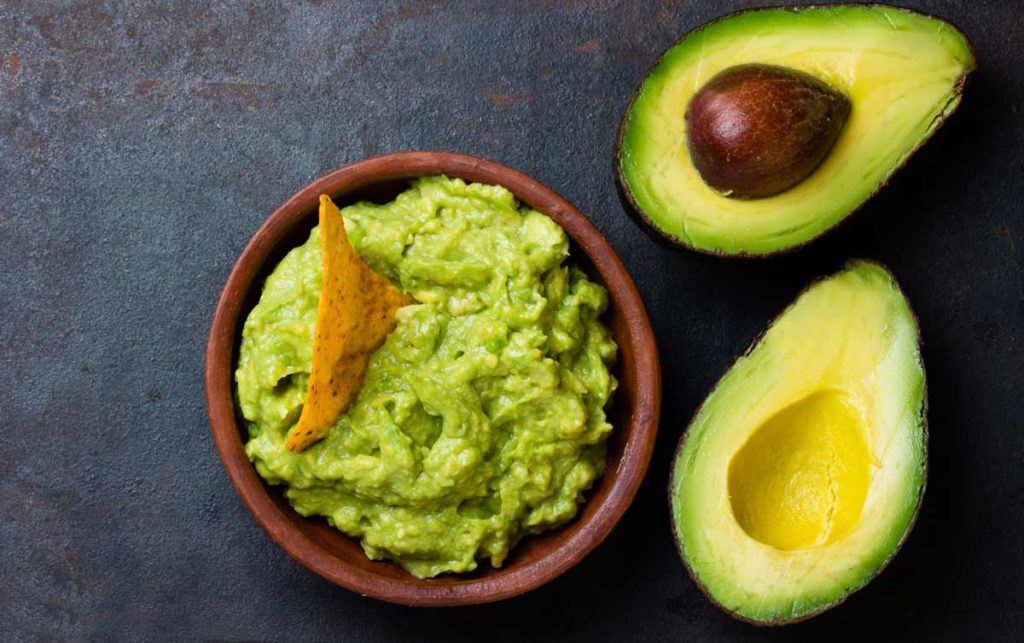
Guacamole contains a toxin called persin, which causes, among many other ailments, breathing difficulties, an upset stomach, and fluid buildup in dogs. Plus, your pooch may also accidentally swallow the avocado pit, and this could lead to obstruction of the gastrointestinal tract.
#9 Bacon
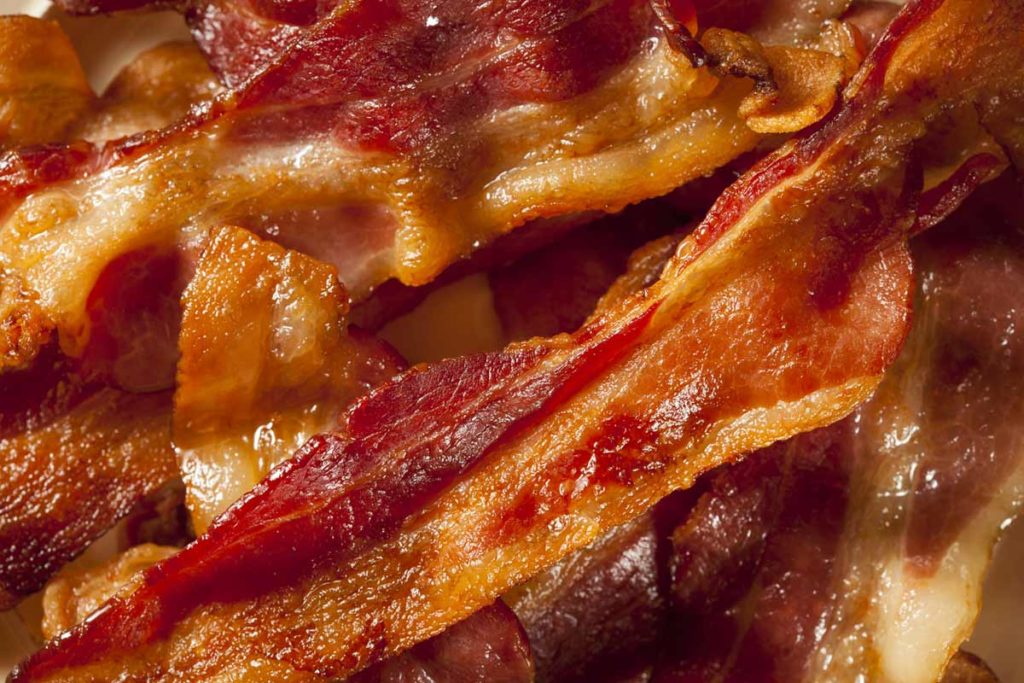
I know what you’re thinking: bacon can’t be all bad, right? And I agree with you! I’ll go on a leap here and say that bacon is one of the greatest foods out there. But only for humans! While seemingly harmless, bacon contains a high
Foods that You Can Give Your Dog
Thankfully, there are even more items that are completely fine as part of a doggy diet. While most of these items don’t provide much nutritional value to the canine and are not as close as healthy as regular dog food, they can be used as a treat if your dog likes the taste. If you are able to give some fruits and vegetables to your dog as a treat this might be a good source of vitamins and minerals for them, and a welcomed addition to their carnivorous diet.
Be sure never to overfeed your dog on human food, as even if it is a large breed they could gain weight very quickly and probably gain pounds that the dog’s body will not be able to carry easily.
#1 Bread
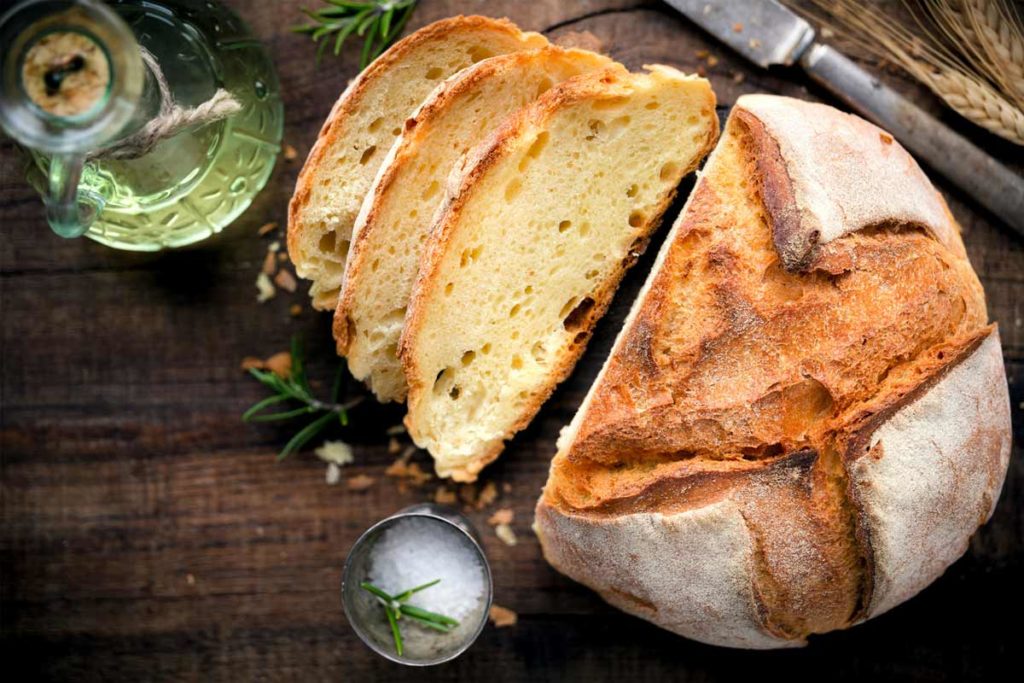
If you’ve been around dogs long enough, then you can probably count the number of times you’ve seen a pooch eat a sandwich or even chowed down on a loaf of bread. My guess, countless times. But the question is, is it safe for dogs to eat wheat-based products at all?? The short answer is yes! Feeding your dog bread every once in a while, certainly won’t harm him. However, while bread won’t necessarily hurt your dog, it has absolutely no nutritional value and won’t provide any benefits to your dog either.
#2 Cashew Nuts
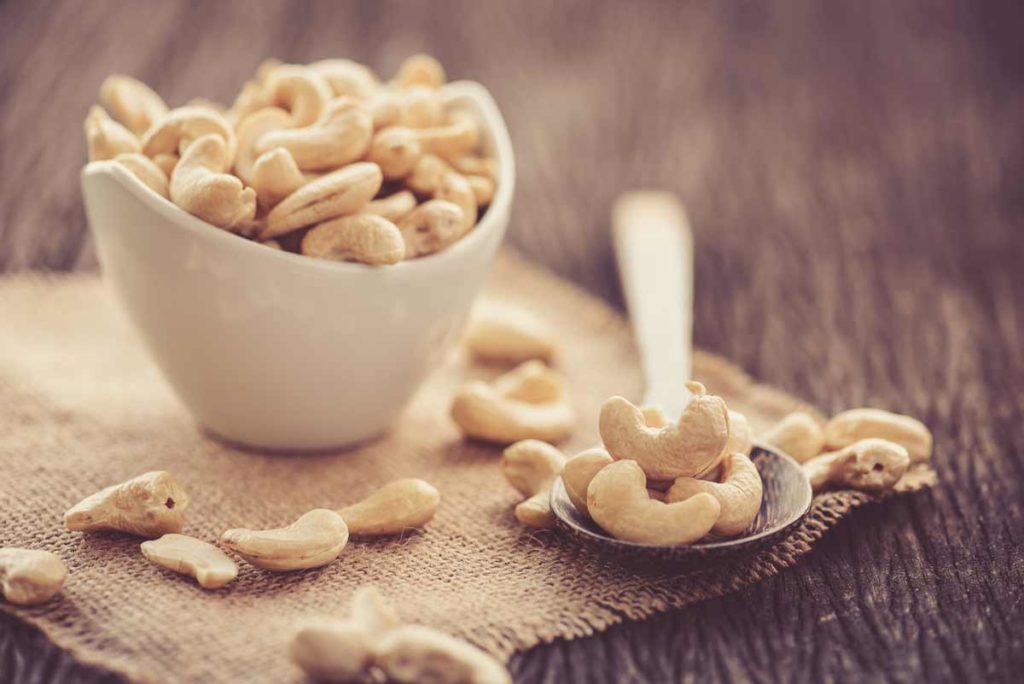
Cashew nuts are generally safe for your dogs. However, there are a few risks associated with feeding your furry friend these tasty treats.
- Cashews are a high-fat, high protein snack that can lead to pancreatitis: a potentially life-threatening condition that can be fatal if not treated immediately.
- Cashews are usually salted, and excess salt can lead to salt toxicity, which can, in turn, lead to diarrhea, vomiting, seizures, and muscle tremors.
- Cashews are a high-fat diet snack that can cause obesity if your dog overindulges in eating them.
If you do decide to feed your pooch cashew nuts, remember to offer them in small quantities and preferably give them the ones that are not salted or seasoned in any way.
#3 Cheese
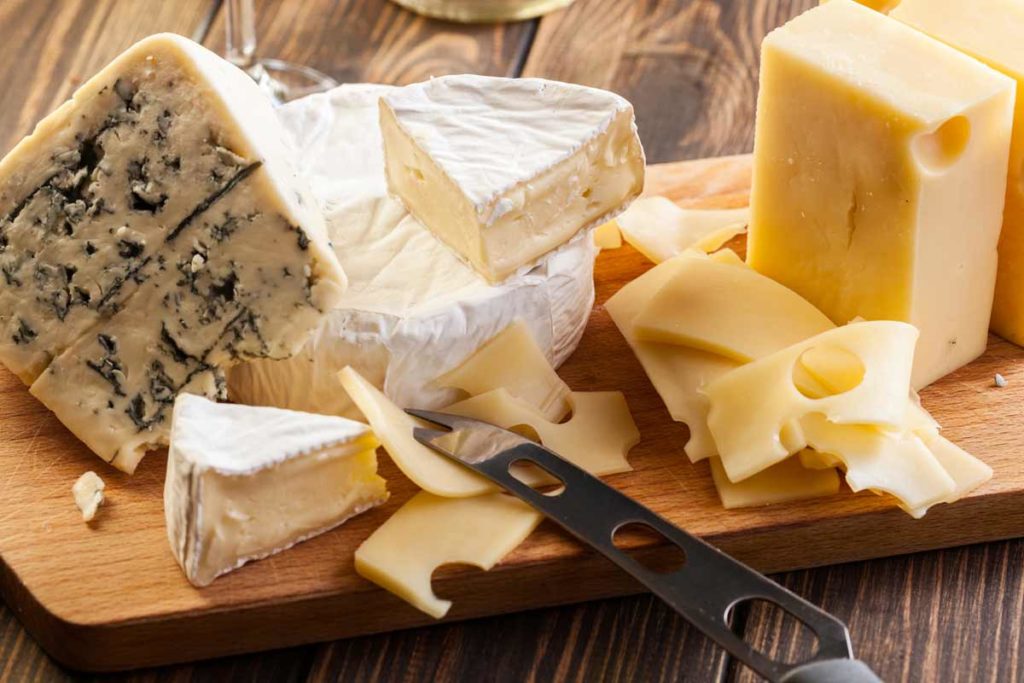
Most dogs love cheese. Unless, of course, your dog is lactose intolerant which is rare. However, just because cheese is safe for your dog, it doesn’t mean it doesn’t have a few risks for the dog’s health associated with eating too much of it. For instance, if you feed your pup too much cheese on a regular basis, he’ll soon become overweight and even suffer from obesity. Or worse, he could develop a classic case of pancreatitis which could be fatal if not treated promptly.
#4 Coconut
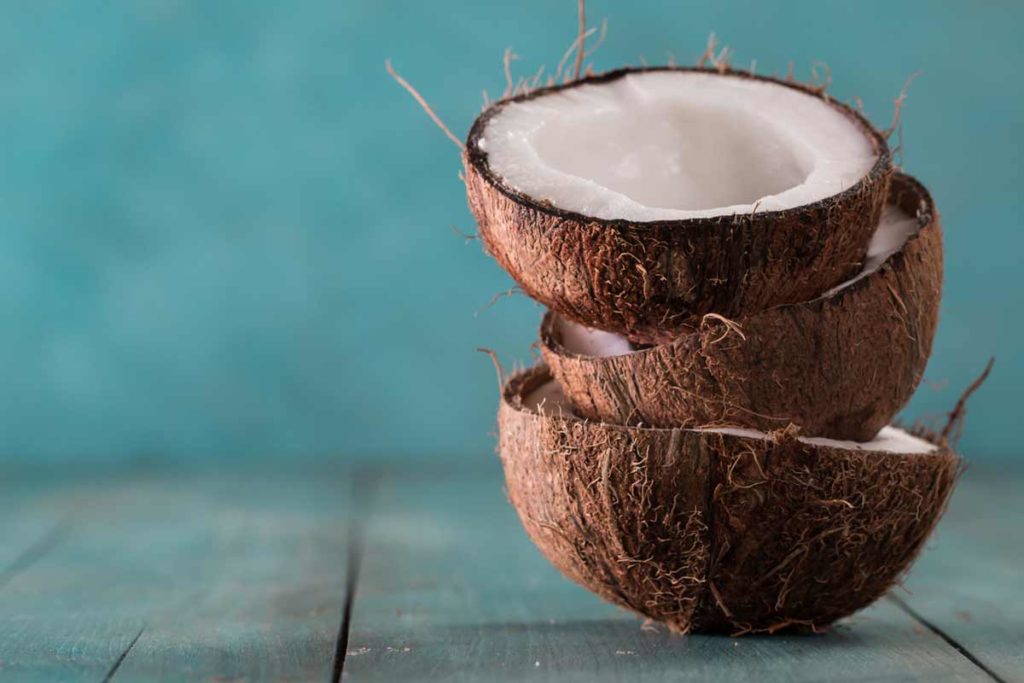
We are all aware that dogs can eat coconut oil. In fact, dog owners are even encouraged to include it in their diet. But the question is, is coconut itself safe for dogs? The short answer is a resounding yes. The coconut meat is just as healthy as the coconut oil itself. And the best part is, although it contains medium chain triglycerides that cause gastrointestinal upset, it is to the most part is non-toxic to dogs.
Benefits of Coconut
- It is packed with antioxidants that help boost the immune system.
- It is high in lauric acid which decreases inflammation and speeds up the healing of wounds.
- It improves your puppy’s skin condition.
#5 Corn
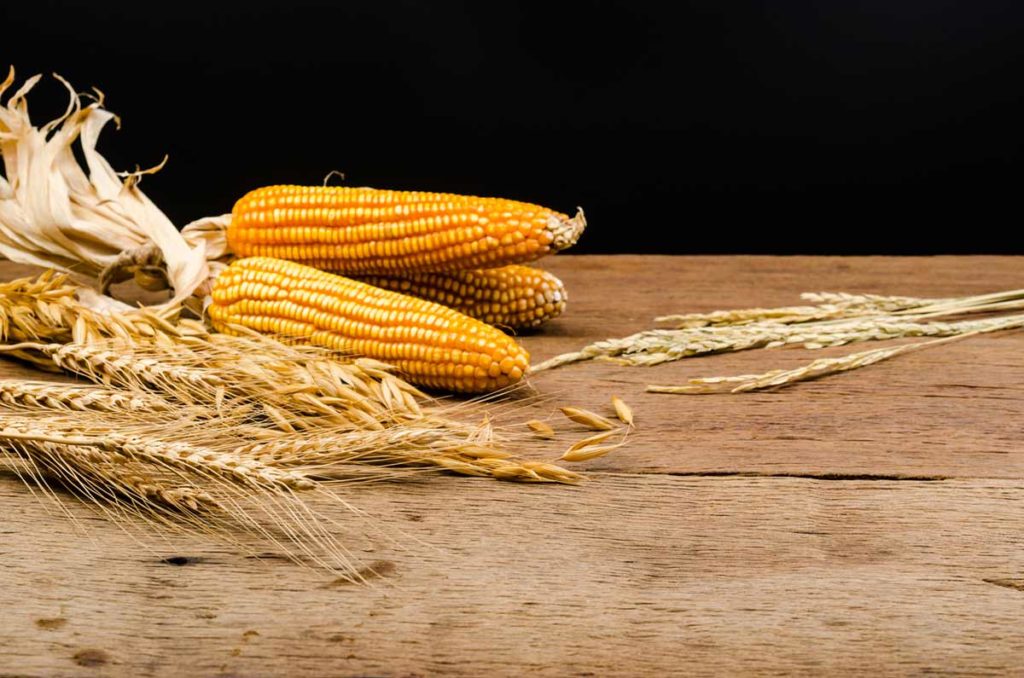
Corn is one of the most popular cereal grains in the world and contains several minerals and vitamins that are great for both humans and dogs. You might find it to be quite an appealing treat because it is relatively inexpensive. However, other than ensuring that your pooch isn’t allergic to corn prior to giving it to him you also have to ensure that you’re only giving him corn moderately. Moreover, you should avoid giving him corn on the cob because he can easily choke on it and suffer serious intestinal blockage as a result.
#6 Eggs
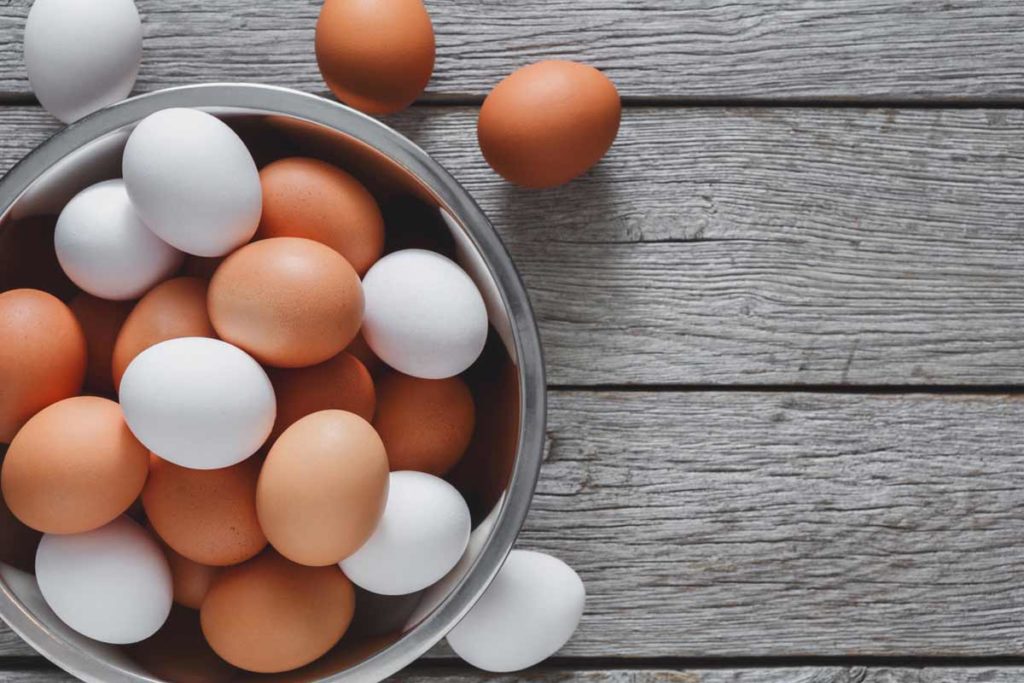
Historically, dogs were known for being notorious at stealing eggs from birds’ nests and eating them raw. Right now they may not have that luxury, but somehow pups are still very fond of eggs. Here’s why you should feed your pooch eggs:
They are high in protein and contain essential amino acids and fatty acids that make them a healthy and nutritious treat. Keep in mind, however, that eggs are also very greasy, meaning that feeding your furry friend too many eggs could result in obesity.
Dangers of Feeding Your Dog Raw Eggs
- Your pooch could contract salmonella.
- Prolonged feeding of raw eggs results in a deficiency in biotin.
#7 Fish
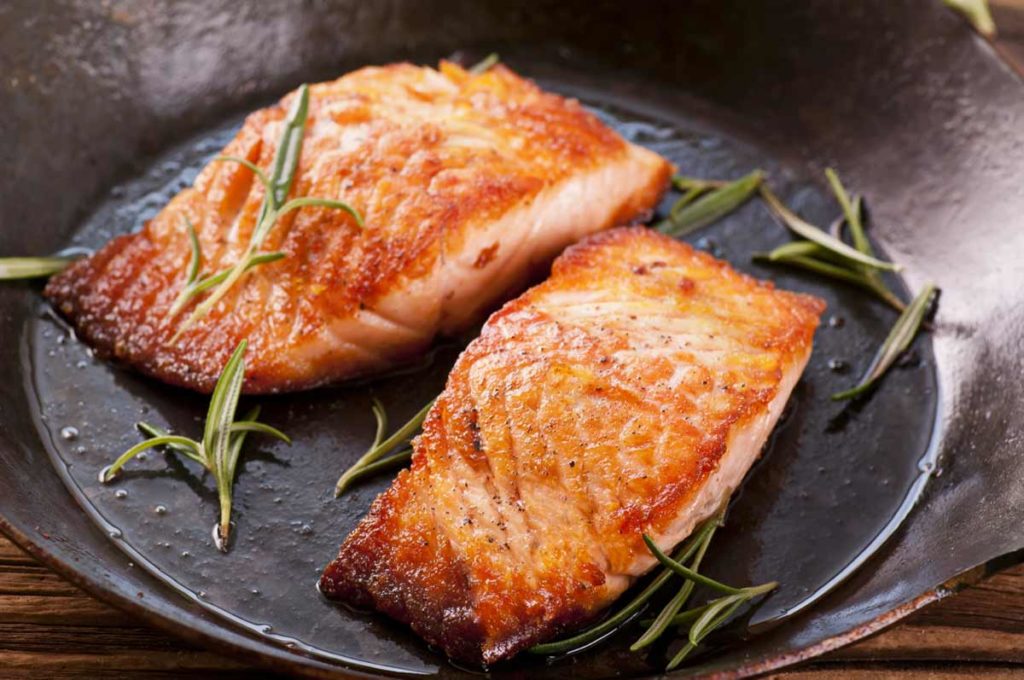
If you’ve ever looked at the ingredients listed on the ingredient list of dog food, then you are probably aware that fish is almost always on the ingredient list. No surprise there, though, really. After all, fish is a healthy source of protein which is essential for your canine friend. However, that doesn’t mean that you can just throw any old fish your dog’s way. You’ll need to consult with your local vet before feeding him just any kind of fish to ensure that you are meeting your dog’s nutritional needs.
#8 Ham
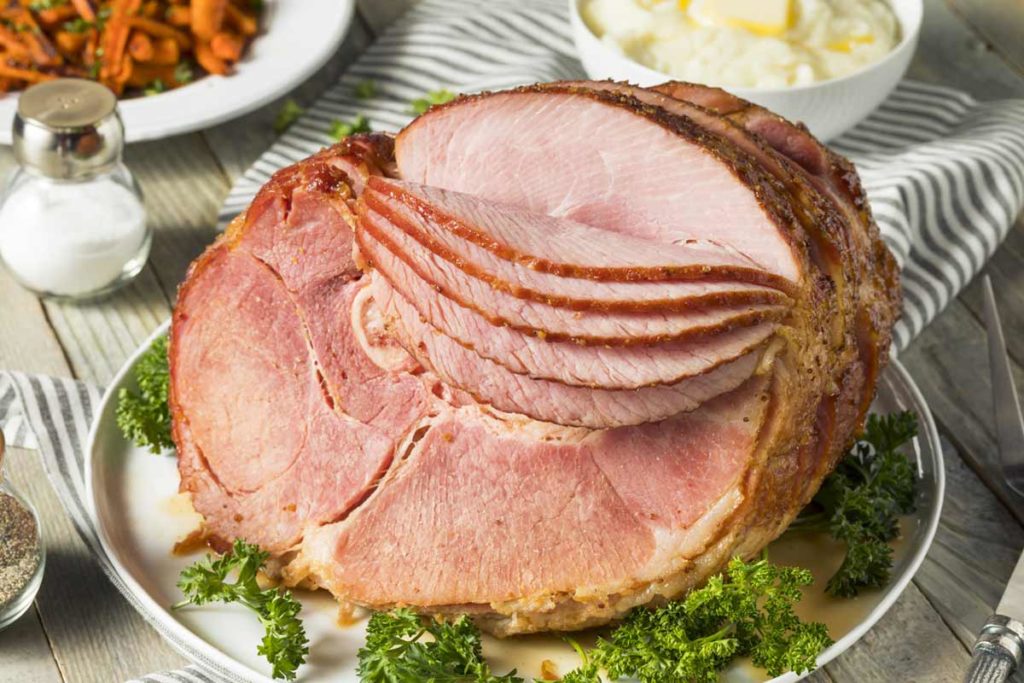
While there’s certainly no harm in giving your pooch a little ham, there are certain things that you need to consider before you do:
- Store-bought ham contains a great deal of sodium and other preservatives which can be harmful to the dog.
- Ham has a high-fat content, which could be harmful to both humans and dogs.
#9 Honey
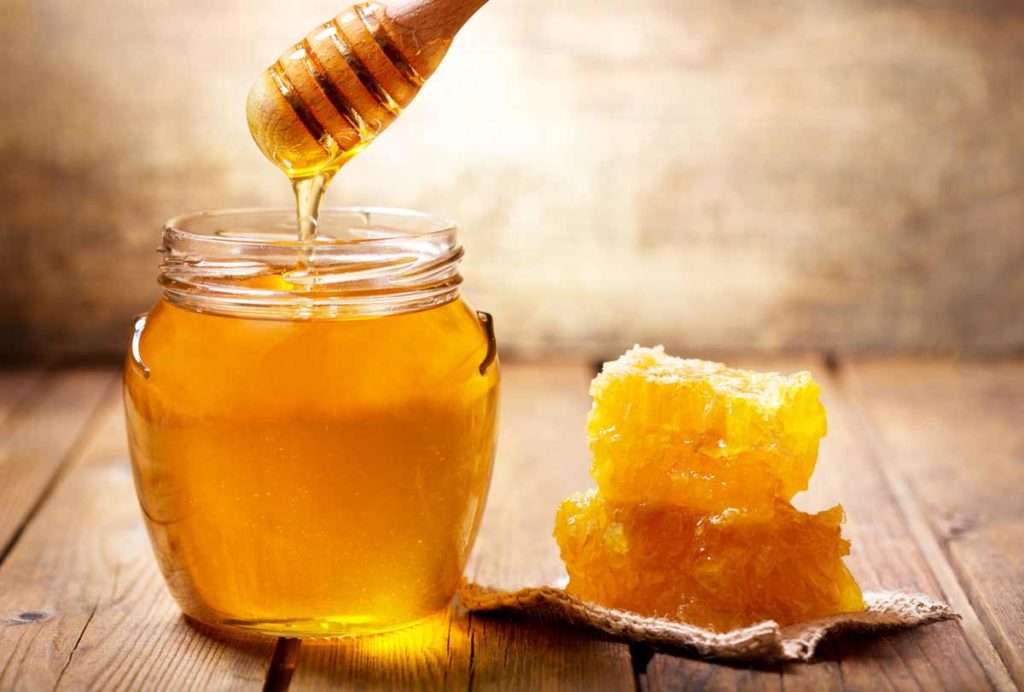
No surprise here. Other than being remarkably sweet, honey also has a wide variety of medicinal properties that make it perfect for both dogs and humans. Plus, it is a wholesome treat with plenty of nutritional benefits to be relished. However, because of the high sugar content, eating too much of it can result in obesity and tooth decay. So, you might want to ensure that you brush your little furry friend’s teeth regularly especially after indulging in honey.
Benefits of Feeding Your Pooch Honey
- It has antifungal and antimicrobial properties that help reduces sores and allergies.
- It cures seasonal allergies.
- It soothes inflammation—if your dog is suffering from a sore throat.
#10 Peanut Butter
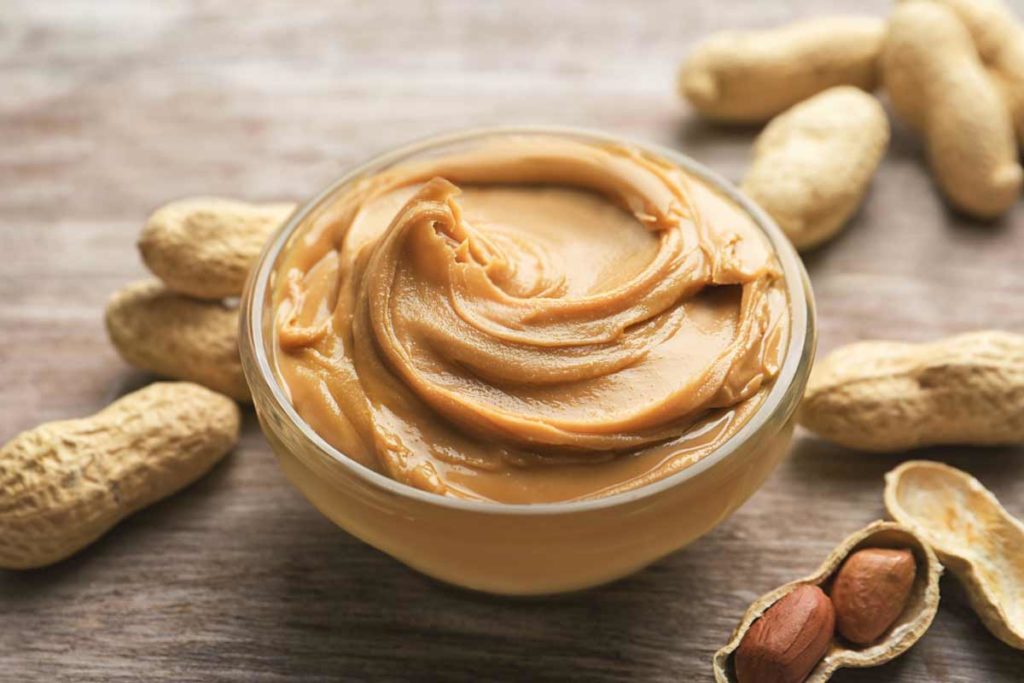
If your pooch is anything like mine, then he’ll probably almost always pop up when you open up a peanut butter jar. It’s almost as if it drives dogs nuts. But the question is, is it any good for pups? Certainly. However, while it’s not exactly harmful to dogs in any way, there are certain things you need to know about peanut butter on the health front.
- The healthiest form of peanut butter is the unsalted or homemade peanut butter.
- When eaten in moderation, it can be a fantastic source of healthy fats, vitamins E and B, niacin, and proteins.
The key here is moderation as overindulgence can cause health complications like pancreatitis and obesity.
#11 Popcorn
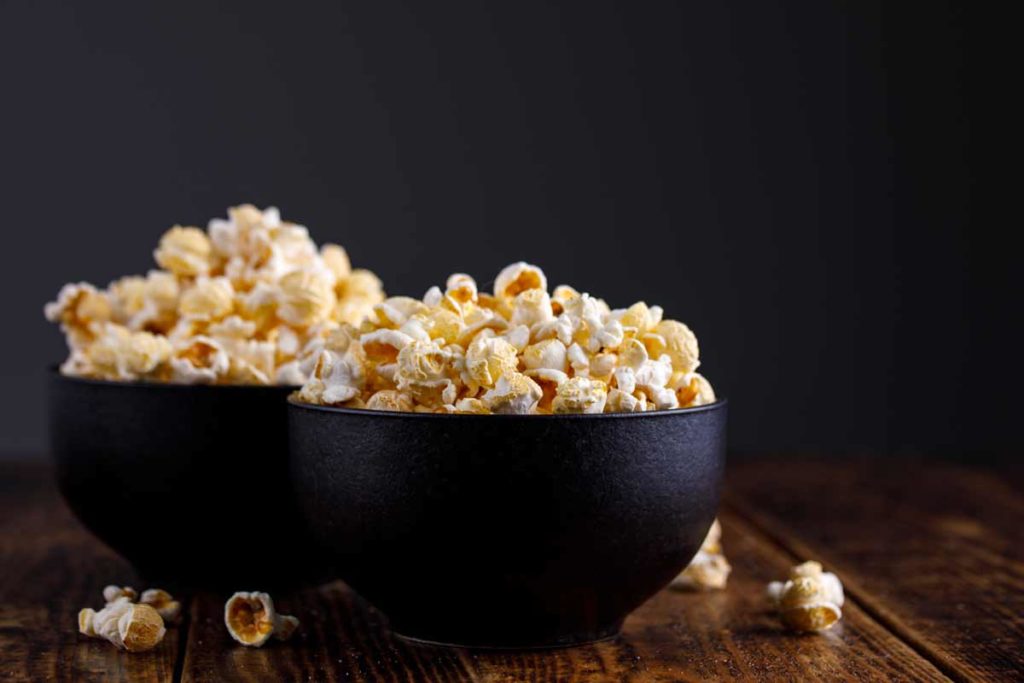
It certainly no secret at all: puppies love popcorn. I fact, you’ll almost always find them cleaning up after movie night so that they can get a taste of the little pops on the couch and floor. If you’re worried about your furry friend’s affinity to eating bits of popcorn after movie night, don’t be. It’s perfectly normal and safe for him to do so. You’ll be surprised at just how healthy those popcorn kernels are as they contain several minerals including phosphorus, magnesium, zinc, and manganese—all of which are important to canine nutrition. However, you might want to be careful about making popcorn treats a regular thing as they can get stuck in your pooch’s teeth or worse pose a choking hazard
#12 Pork
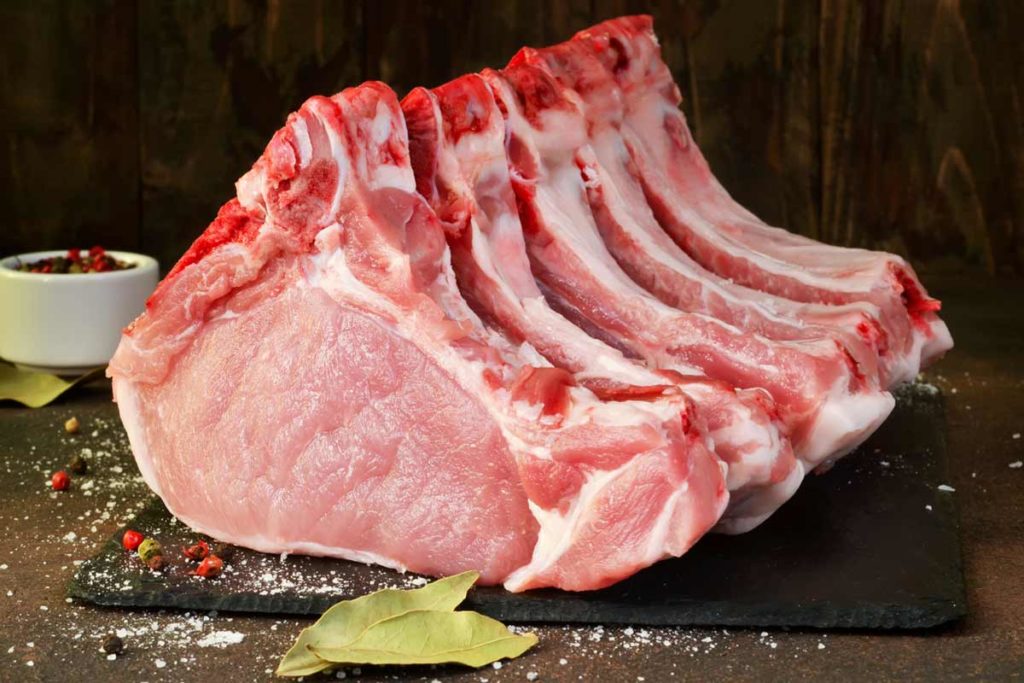
Eating meat comes naturally to dogs. And that goes for all kinds of meat, including pork. However, if you are going to feed your canine friend pork, there are certain conditions that you must adhere to. For one, you might want to keep off any seasonings and spices as they can be extremely dangerous for your dog.
*Is raw pork safe for dogs?
Here’s the blatant truth: although it is highly recommended that you feed your pup raw meat to act as dental floss for your pooch’s teeth, eating raw or undercooked pork is not safe. And I am not just talking about the fact that its simply just not hygienic but also because the meat could very well be infected with Trichinella parasites, which can cause a parasite infection called trichinosis. The disease is characterized by diarrhea, pain and stiffness, an upset stomach, lethargy, vomiting, elevated fever, and muscle inflammation.
#13 Salmon
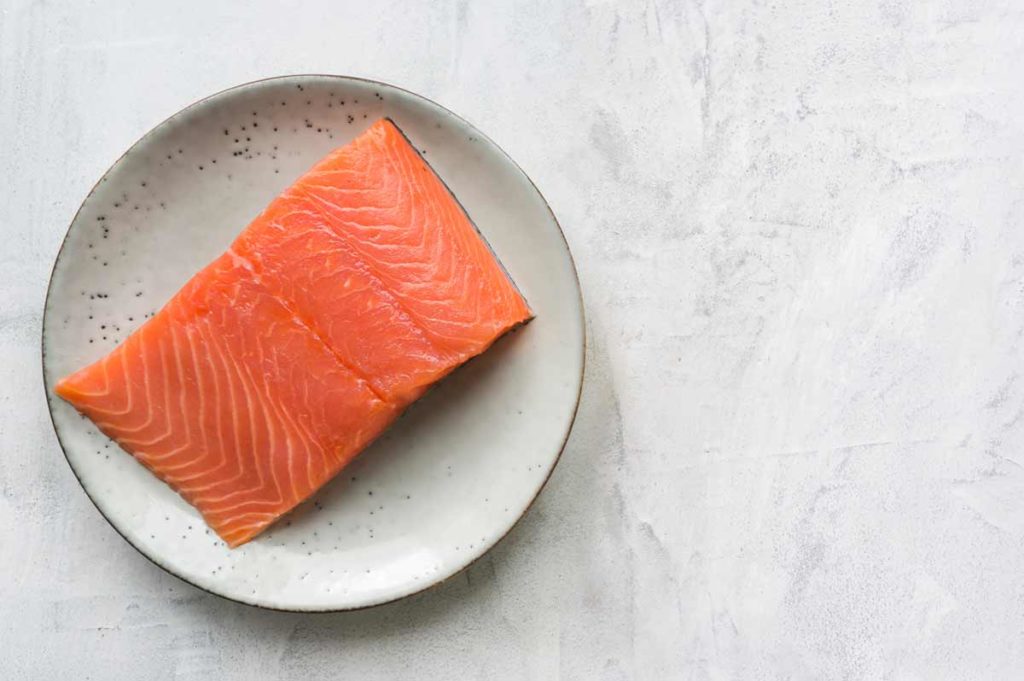
Salmon, like most fish, isa great source of omega-3 fatty acids, which are great for dogs that need a little boost in as far as the immune system is concerned. It’s also a great source of protein which no doubt all dogs need plenty of. However, you’ll need to be careful about how you prepare the salmon as raw or undercooked salmon could contain theNeorickettsia Helminthoeca parasite, which causes salmon poisoning disease.
Now that the matter of what dogs can eat is out of the way let’s get into which foods are off limits for your little pooch.
How to Limit the Amount of People-Food
- Keep your pup away from the dinner table to avoid the temptation of feeding him table scraps.
- If you have to feed the dog table scraps, make sure that they make less than 10% of your pooch’s total intake.
Giving your pup treats might seem like a good idea at the time. I mean, no harm done, right? Not necessarily. The truth is, some human foods do more harm than good for your pooch. If you don’t fancy seeing your canine friend ill, the best thing for you to do is to ensure that you are not feeding him any of the foods mentioned earlier.
Nevertheless, if you really have to feed him human foods, we have listed some great treats that your dog will enjoy and also get some nutritional value out of.
I grew up in a household that was filled with animals. I believe that my fate as a dog-loving person was sealed in early childhood since my parents owned several dogs of varying sizes and breeds. There was no choice but to take care of and learn about dog habits and the best animal care practices — otherwise, I’d be clueless about how to go about the creatures I was surrounded by day and night.
As a life-long puppy lover, I know a thing or two about dogs and how to go about caring for them in the best way possible. Although I’m not a professionally trained dog behaviorist, trainer, or veterinarian, all of my knowledge and experience with canines comes from a place of love and a deep-rooted passion for dogs and animals in general.
Seeing as dogs kept me company throughout every stage of my life, I decided to follow a different path in my academic life and obtained a Bachelor’s and Master’s degrees in Marketing Management and Digital Advertising, which ultimately allowed me to combine my professional training and personal experience by creating the ultimate dog lover’s resource website! Along with my husband, Dave, I run MySweetPuppy for like-minded dog lovers who want to have a single, clear, and reliable information source about anything and everything related to dogs and their well-being.
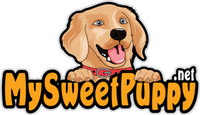

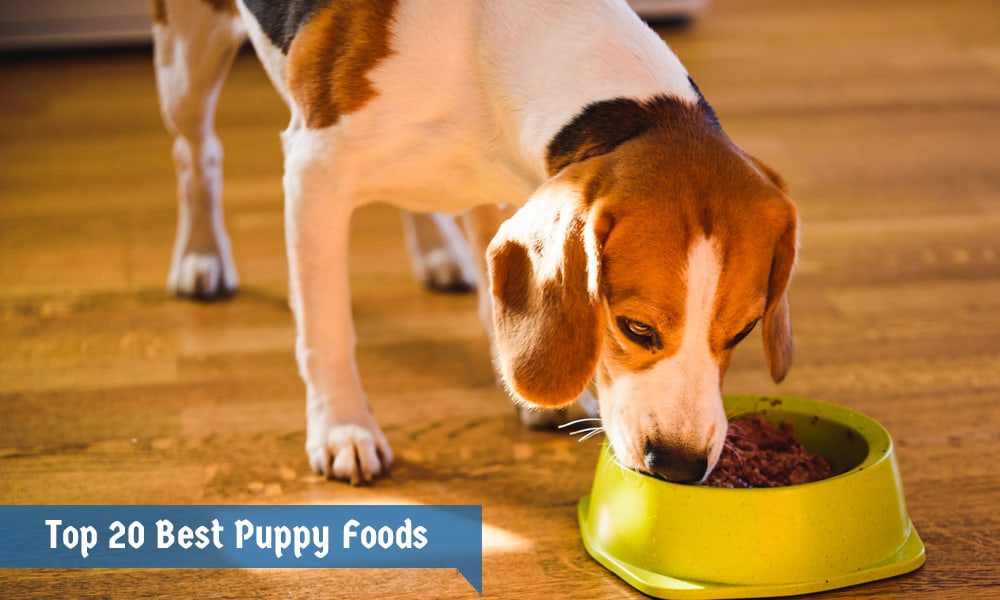
![[REVIEW 2021] Is Blue Buffalo Food A Good Choice For Your Pup?](https://mysweetpuppy.net/wp-content/uploads/2015/10/blue-buffalo-puppy-food-reviews-210x210.png)